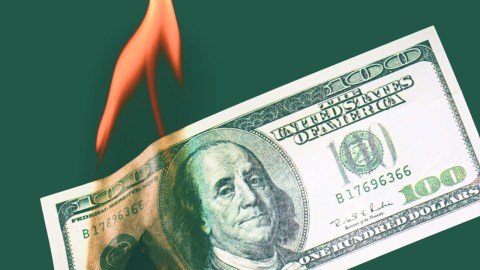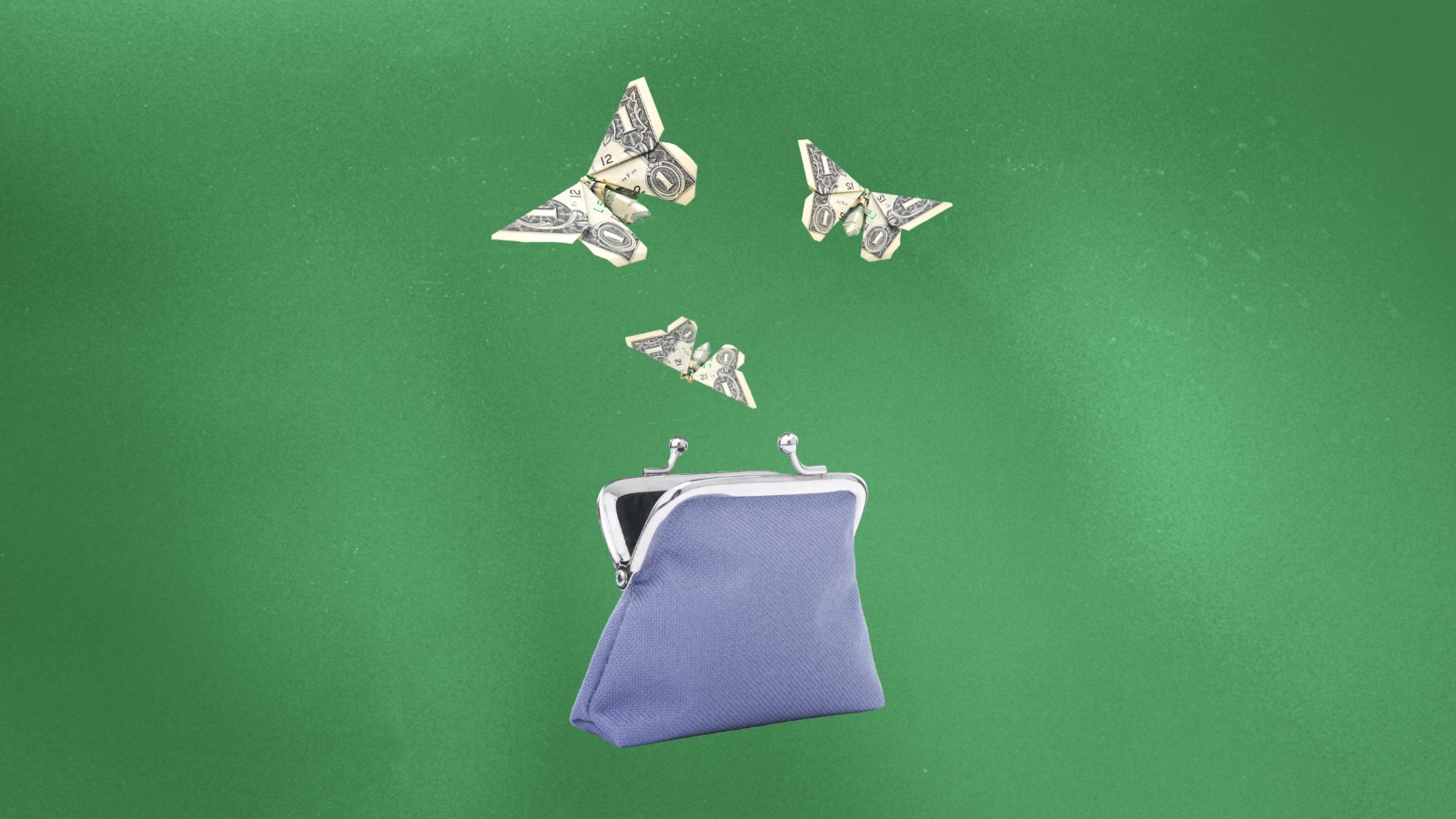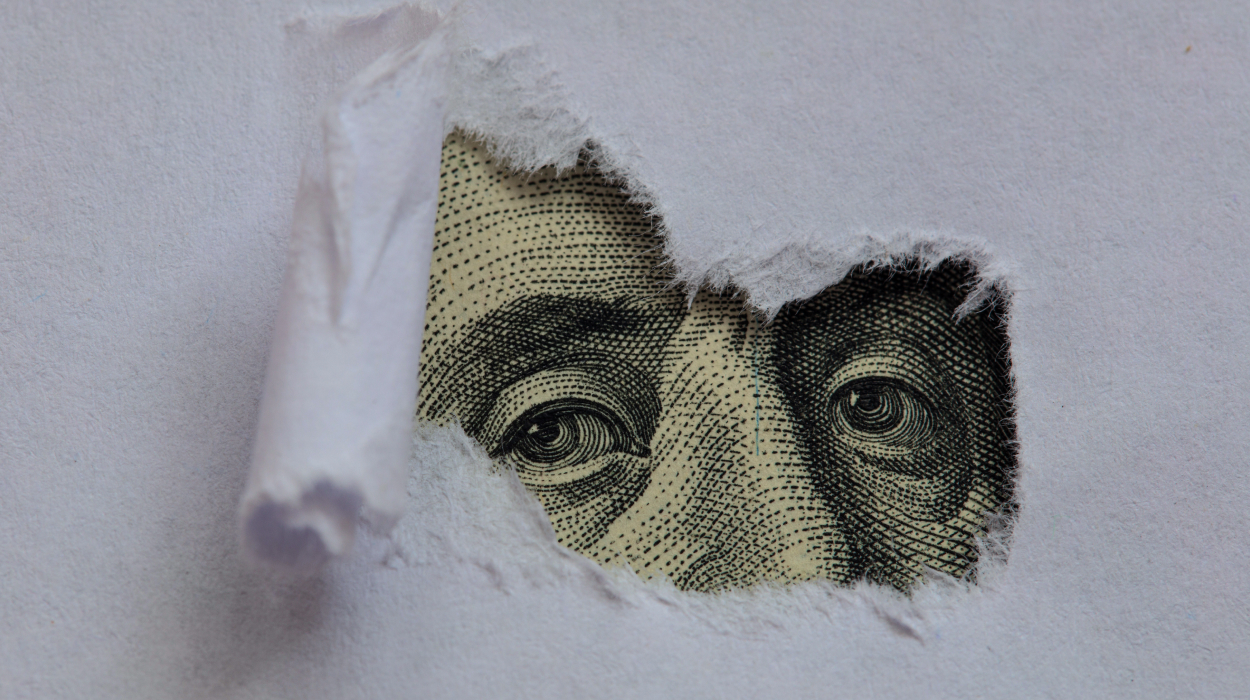How to change the subtle money habits that shape your daily spending

- In order to improve your habits, it’s helpful to understand exactly what habits are and where they come from.
- Habits are stored deep in the brain away from conscious effort, making it difficult to simply eliminate them with willpower
- Here are some research-backed tips for creating new habits that can help improve your personal finances.
Habits shape our lives without us even noticing—from brushing our teeth in the morning to scrolling through our phones before falling asleep. “In the course of your day, about 40% of the things you do are habits,” says Dr. Moran Cerf, a neuroscientist at Northwestern University. “All of this happens behind the scenes without you being aware of it.”
Financial habits come in all forms. Perhaps you buy lunch every day at work, browse online stores any time you’re bored, or spend exactly what you make every month.
Without you even noticing, these small habits can build up and significantly impact your financial well-being. As financial therapist Lindsay Bryan-Podvin explains, “Small behaviors can have really big impacts over time, just through the power of habit.”
So, how can you reduce unhelpful financial habits and maximize good ones?
Habits in the brain
In order to improve your habits, it’s helpful to understand exactly what habits are and where they come from.
In short, habits are automatic behaviors triggered by an environmental cue. In other words, something in the environment—like what time it is or where you are—spurs your behavior, rather than you consciously intending to do it. For example, simply sitting in a car in the morning may cue you to put on your seatbelt and drive a certain route to work.
Habits form any time a behavior is repeated. Although a reward incentivizes the behavior to repeat at first, habits persist even when rewards are gone. This is because the habit has been stored away from conscious reasoning deep in the brain’s striatum, which is involved in stimulus-response learning and motor movement.
Brain imaging studies help show how habits get distilled. Dr. Joseph Kable, a neuroscientist at the University of Pennsylvania, explains what happens when someone is asked to repeat a behavior over and over. “Initially there’s lots of areas involved,” he noted. “But as you do the task over and over again what you see is what you see is fewer and fewer areas that were necessary the first time through. It’s only using those neurons and those brain areas that are absolutely necessary in order to get the task done.”
This makes the habits easy and mindless, freeing you up to think about new things. But it also makes habits difficult to break, because your brain has made you unaware of them.
Improving habits: Identify what you want to change
Because people are not fully aware of their habits, the first step to improving habits is to identify them.
According to Dr. Cerf, “Just by saying you know I have a habit, and I don’t like this habit, you are already one small step towards changing it.” Consider what your daily routine looks like, what patterns your spending records reveal, and even what trusted friends or family members have noticed.
Of course, not all financial habits are bad, even if they add up to a lot of spending. For example, many people spend a few dollars every day on small items like coffee or splurge at holidays. These expenses can be significant over time. What is important, Bryan-Podvin says, is being honest about whether the spending supports your well-being—mentally and financially.
“If it’s feeling good for you, make sure it works for your finances and keep moving forward,” she suggests. “If it feels not-so-good for you, that’s usually an indication that you can check in with what’s going on financially.”
Watch our full interview on money habits:
Create a new, better habit
Because habits are stored deep in the brain away from conscious effort, it is difficult to simply eliminate them with willpower. So, instead of simply cutting them, most experts suggest that people replace unhelpful habits with better ones. Here are some research-backed tips for creating new habits.
Make one change at a time. Managing multiple concurrent life changes can be overwhelming. A better option for most people is to start with one change and practice it until it’s easy. This can improve what psychologists call a sense of “self-efficacy,” which keeps you motivated because you believe you have the ability to actually achieve your goals.
“What we often make the mistake of doing is trying to do everything all at once. I’m going to stop spending on takeout, I’m going to save for retirement, I’m going to save for retirement,” Bryan-Podvin noted. “Instead, a much better way to implement new financial habits is to do one at a time and to stick to something that you had set out to do.”
After you’ve succeeded in implementing your new helpful habit, it’s time to add another.
Determine what cued the old habit. Anything in your environment—from time of day to location to certain people—can cue habits. Emotions like boredom, loneliness, or frustration may also spur certain behaviors.
So, take some time to consider your unique triggers. Self-reflect, review spending records, and consider asking family or friends what they’ve noticed. Financial Therapist Dr. George James said, “there are so many things that come from awareness, reflection, and maybe even accountability.”
Attach the new behavior to the cue. Then plan to implement your new behavior any time you encounter the old cue. For instance, if boredom triggers you to go shopping, then pick a new activity to consciously do any time life starts to feel uninteresting. You could commit ahead of time to call a friend, work on a hobby, or research fun weekend activities.
It may even be possible to create new cues altogether. For example, Dr. James suggests sharing your habit goals with friends and family members. This may not only increase your social support, but those people will then serve as a cue to continue the new behavior.
Associate good habits with positivity. Remember that most habits began because a behavior was rewarding. The reward (or a belief the behavior might lead to a reward) is what motivates repeat behavior.
Take a moment to consider how you can link your new habit with a reward. For example, if you’d like to cook more meals at home to save money, could you find some recipes that look easy and tasty or ask a friend to join you for meal-prep nights. Tracking your progress—say, by checking off the months until a debt is paid, calculating your yearly savings, or keeping a journal of good decisions—is another way to link your new habit with positivity.
Automate good habits. Some helpful habits just might not be linked to a cue or be immediately rewarding. In that case, it can help to ‘outsource the habit’ to an automated system. For instance, if you’d like to start saving $100 every month, consider setting up an automatic deduction from your paycheck or banking account each month.
Enjoy your improved money habits
Creating new habits isn’t always easy, but the long-term rewards are substantial for your financial and mental well-being. “Getting rid of bad habits or forming new ones will have an impact all the way across the board,” financial therapist Steven M. Hughes summarizes. “Not just with your money, but also how you feel mentally, emotionally, and physically.”





